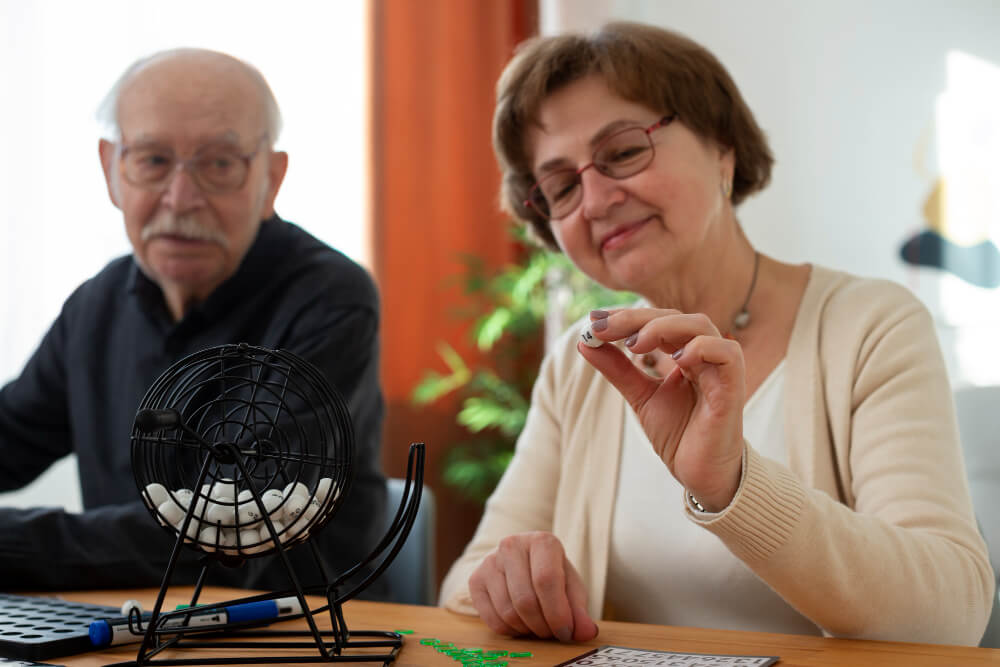Is your loved one experiencing symptoms that seem to combine Alzheimer’s and vascular dementia? Behold, it’s none other than Mixed Dementia! The disease comes with vast symptoms that affect the quality of life of individuals. In some cases, you might need to hire assisted living caregivers.
However, diagnosing and treating the disease are challenging for healthcare professionals. Antihypertensive therapy and a healthy diet slow the disease progression and improve the overall quality of life of your loved one.
Let’s take a closer look and learn more about mixed Dementia. Also, we’ll discover the strategies for caregivers to help patients revive from this condition.
Mixed Dementia: What Is It?
Assume that the decline in cognitive performance is caused by a combination of variables as opposed to a single cause. That’s how mixed dementia is. It happens when the mind encounters changes connected to a few types of dementia, most often vascular dementia and Alzheimer’s sickness, simultaneously. This causes a unique set of symptoms, which may vary depending on the specific types and brain regions affected.
Signs of Mixed-Type Dementia
Symptoms of both vascular dementia and Alzheimer’s disease can overlap in mixed dementia. The following is a brief summary of some typical warning signs to keep in mind and when should you consider assisted living care:
- Memory issues: Problems with short-term memory-intensive tasks, forgetting familiar names and locations, and difficulty recalling recent events are potential warning signs.
- Challenges to reasoning and thinking: Declining critical abilities to think could make judgment and planning challenging.
- Language issues: It’s possible to have trouble communicating, which can include coming up with the proper words, structuring phrases, or following conversations.
- Mood swings and behavioral abnormalities: Potential manifestations of mental disorders may include feelings of fear, sadness, emptiness, or seeing things that are not there.
- Physical concerns: Compared to Alzheimer’s alone, mixed dementia is more likely to cause walking difficulties, balance problems, and coordination impairments.
What is the Couse of Mixed Dementia?
The specific causes of mixed dementia are yet to be discovered due to the continuity of research. However, as per the various researchers, it is possible due to several associated disorders at the same time.
Alzheimer’s illness: The accumulation of Amyloid plaques and tangles in the brain, which causes a progressive decrease in cognitive function, is the hallmark of this neurodegenerative illness.
Dementia: Vascular dementia occurs due to the inadequate supply of blood to the brain, usually caused by strokes or TIA (Transitory Ischemic Attack). It is vascular problems that worsen the brain tissue as well as decrease mental ability.
However, there is a need to know that mixed dementia can sometimes be worsened by other forms of dementia, such as Lew body dementia. In this case, taking help from professional assisted living caregivers like Oakland Heights can be extremely useful.
The Difficulties in Diagnosis and Therapy
Some elders may develop mixed dementia which is challenging to diagnose. Some of the evaluation tools that doctors use include a detailed health and medical history, tests that assess mental function, and Neuroimaging tests such as an MRI or CT scan and, in some cases, a blood test. Diagnostic work-ups are difficult mainly due to the lack of specific tests that confirm the disease.
Unfortunately, mixed dementia has no known treatment. On the other hand, the goal of treatment is to control the symptoms and halt the progression. This could include:
- Drugs: Medication prescriptions may be given by doctors to treat mood swings, enhance blood flow, or manage Alzheimer’s symptoms.
- Lifestyle changes: Eating a balanced diet, exercising frequently, and participating in social activities can all greatly enhance quality of life.
Techniques for Nursing Homes
It can be quite difficult to navigate the nuances of mixed dementia as a caretaker for a patient. The following are some useful coping mechanisms to consider:
- Become knowledgeable: Gaining knowledge about the illness, its signs, and how it progresses will better prepare you to face obstacles.
- Seek assistance: Reach out to organizations that provide dementia care or support groups without holding back. Learning from others and exchanging experiences can be really beneficial.
- Establish a secure atmosphere: Make sure there are no risks and that navigating the living area is simple.
- Create routines: Your loved one may feel more secure and at ease if you stick to a regular schedule.
- Put communication first: Use plain language and exercise patience. Reaffirm their emotions while keeping a cheerful, collected attitude.
It’s important to prioritize your own physical and mental well-being. Allocate time for your hobbies and ask for assistance when required.
Concluding
Mixed dementia poses particular difficulties, but carers may greatly enhance the quality of life for their loved ones by having the right knowledge, coping mechanisms, and support. Early diagnosis enables more effective intervention and improves the ability of the affected person to manage the illness. Recall that you are not traveling alone. You can provide your loved one with mixed dementia the greatest care possible by educating yourself, getting help, and using practical techniques.





